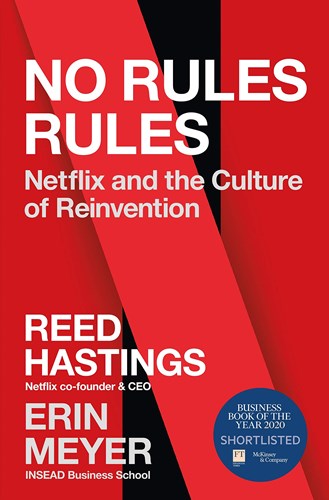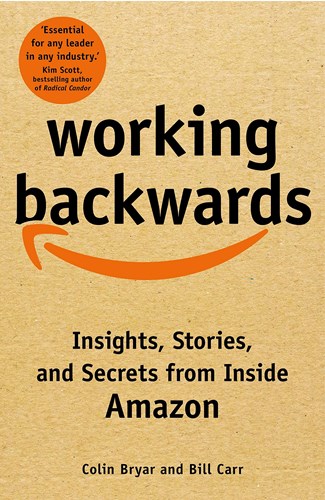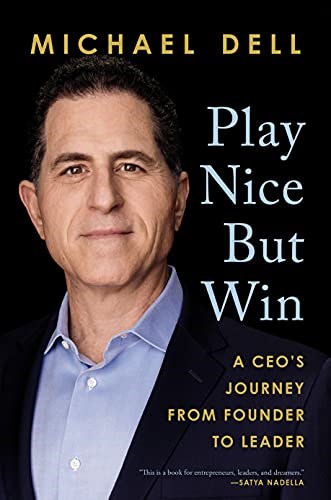

Weekly update - Recommended Christmas reading list
This week’s update comes from our Discretionary Investment team in Guernsey.
Today’s note will be the last update from our discretionary investment team before the festive period. As such, we thought this would be a nice opportunity to share with you some of the books the Blue Chip team have read over the course of 2021 that delve under the bonnet of some of the world’s most renowned companies.
Each of the books below provide insight into the unique cultures established that have enabled these businesses to remain relevant in an ever-changing world. Whilst the presence of a strong leadership team can give you clues about the direction of a company over the medium term, a strong culture provides principles that transcend multiple generations of leaders. This can give insight into the durability of a company’s competitive advantage – a key attribute for investors seeking to identify businesses that they can hold onto.
No Rules Rules by Reed Hastings and Erin Myer
Netflix is the antithesis of a micromanaged company. The company has been built on a culture of freedom and responsibility centred around three core tenets: the desire to increase talent density, the requirement for staff to embrace candour and a reduction in controls that prevent its workforce from reaching their full potential.
At Netflix, employees are paid a top-of-the-market salary, empowered to make decisions without the prior approval of management, encouraged to take extended periods of holiday and entrusted to manage expenses in a manner that is aligned with the best interests of the company. This makes for a very different working culture from most other businesses operating a rules-based approach.
No Rules Rules explains this unorthodox approach in detail and how this has served the company well in its pursuit of streaming domination. With our investment in the Walt Disney Company firmly centred around the expansion of its own streaming platform, Disney+, a firm understanding of the competitive landscape is a clear benefit.
Importantly, the book challenged our current mindset on Netflix, where we focused too much on what could go wrong because of its exorbitant valuation and precarious financial position, to what could go right and how any financial concerns may well be consigned to the past because of management’s ability to adapt and the freedom it offers its people to drive the business forward.
The book, of course can’t help with the stock’s valuation but we have at least got a line in the sand that, if crossed, may well see Netflix in the portfolio.
Working Backwards by Colin Bryar and Bill Carr
Written by two former senior executives, Working Backwards provides a fascinating insight into the inner workings of ‘the Earth’s most customer-centric company’. The title of the book is an ode to Amazon’s approach to innovation – starting with what the optimal solution for the customer would look like and working backwards from there to turn that vision into a reality.
It is this approach that has seen Amazon transition from an online marketplace for books, to an online store for just about all physical goods, to an online store that embraced digital media and, more recently, to a provider of web services that provide computing power/storage to other business in a scalable manner.
One of the main takeaways for us was the processes the company has put in place that allow it to remain nimble, despite is gargantuan size. Amazon was early to recognise the importance of autonomy in removing bottlenecks. Rather than splitting teams into functions, it created what became known internally as ‘two-pizza teams’, which contained the complete set of skills (covering a range of disciplines) it needed for the task that team had been allocated.
E-commerce and digital transformation are two themes we invest into and Amazon provides compelling solutions in both arenas. It is a formidable competitor to several of our existing holdings and a company we would certainly consider investing in at a valuation compelling for long-term holders.
Play Nice But Win by Michael Dell
Play Nice But Win recounts the tale of Dell Technologies Inc, from its creation in Michael Dell’s University of Texas dorm room in 1984 to the tech giant plagued with growth concerns in a maturing PC market. Dell recognised that the company needed significant investment in order to undergo the transformation required to remain relevant, and that it would be difficult to do this under the constant gaze of Wall Street. He made a proposal to take the company private, fending off attacks from infamous activist investor Carl Icahn in the process.
The story of Dell highlights the inherently short-term focus of the broader analytical community and the opportunity this can provide long-term investors (like us) in their pursuit of outsized gains. Dell was able to see the long-term potential for his company in a market that was rapidly expanding beyond the personal computer market that had propelled his company to initial success. Doing so enabled him to diversify the business into new revenue streams and propel the company to new levels of success.
The book’s focus gives us insight into a savvy operator who was able to outwit adversaries and win. Could identifying similar traits in future leaders help yield comparable returns for investors? We certainly think so, which is why we apply as much time as we can in understanding the person at the helm, especially if it’s a founder/owner of a particular business.
-----------------------------------------------------------------------------
We hope you enjoy the above recommendations as much as we did – please get in touch with any thoughts or feedback!
Finally, on behalf of everyone on the discretionary investment team, we’d like to take the opportunity to thank our investors for their continued support in what has been another interesting year. We wish you a Merry Christmas and look forward to working with you all in pursuit of your investment goals in 2022 and beyond.
FINANCIAL PROMOTION: Any mention of individual stocks are with reference to our management of the Global Equity Blue Chip Fund, are based on our own proprietary views and are not a recommendation to investors.





